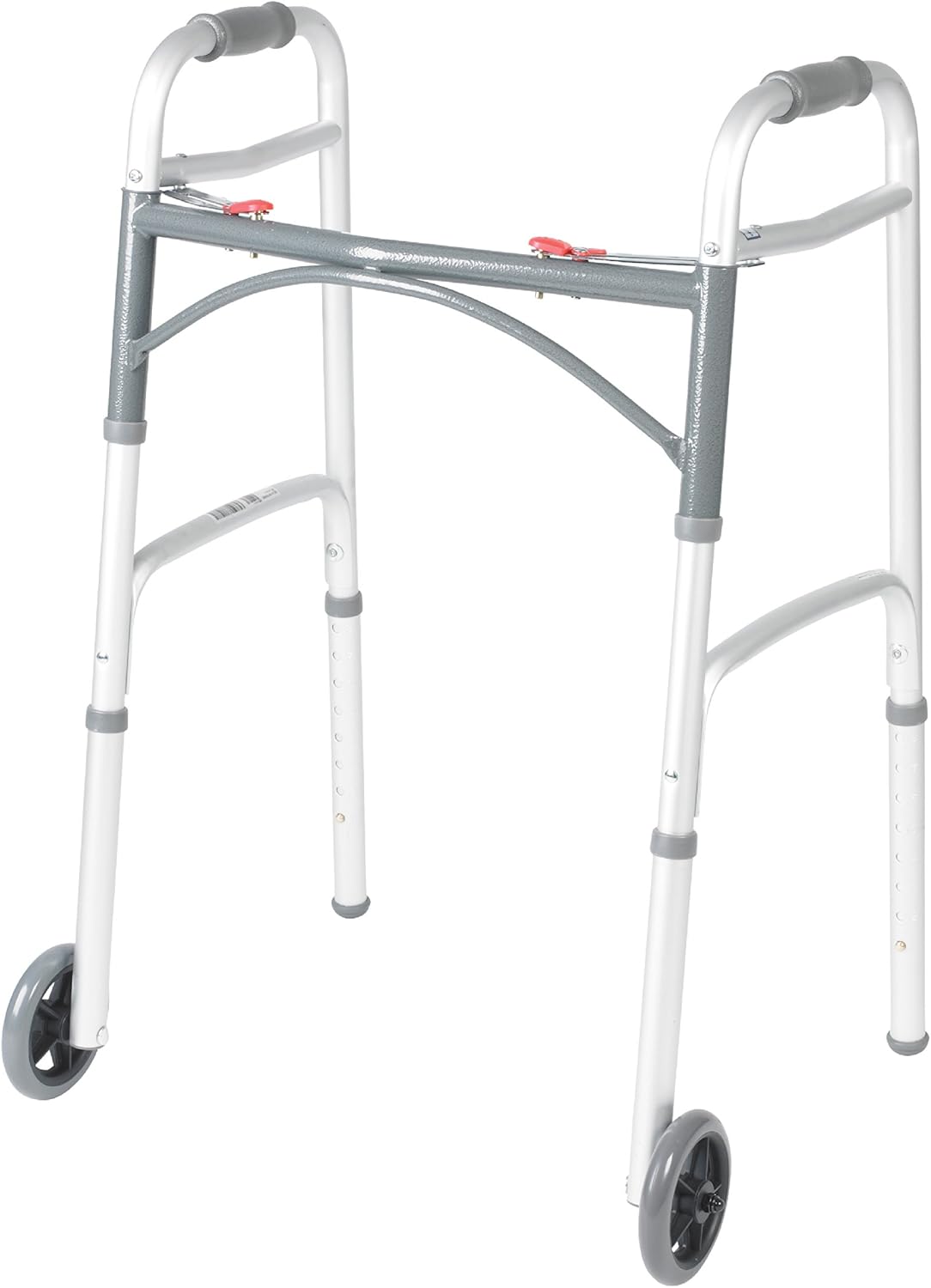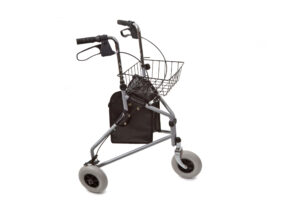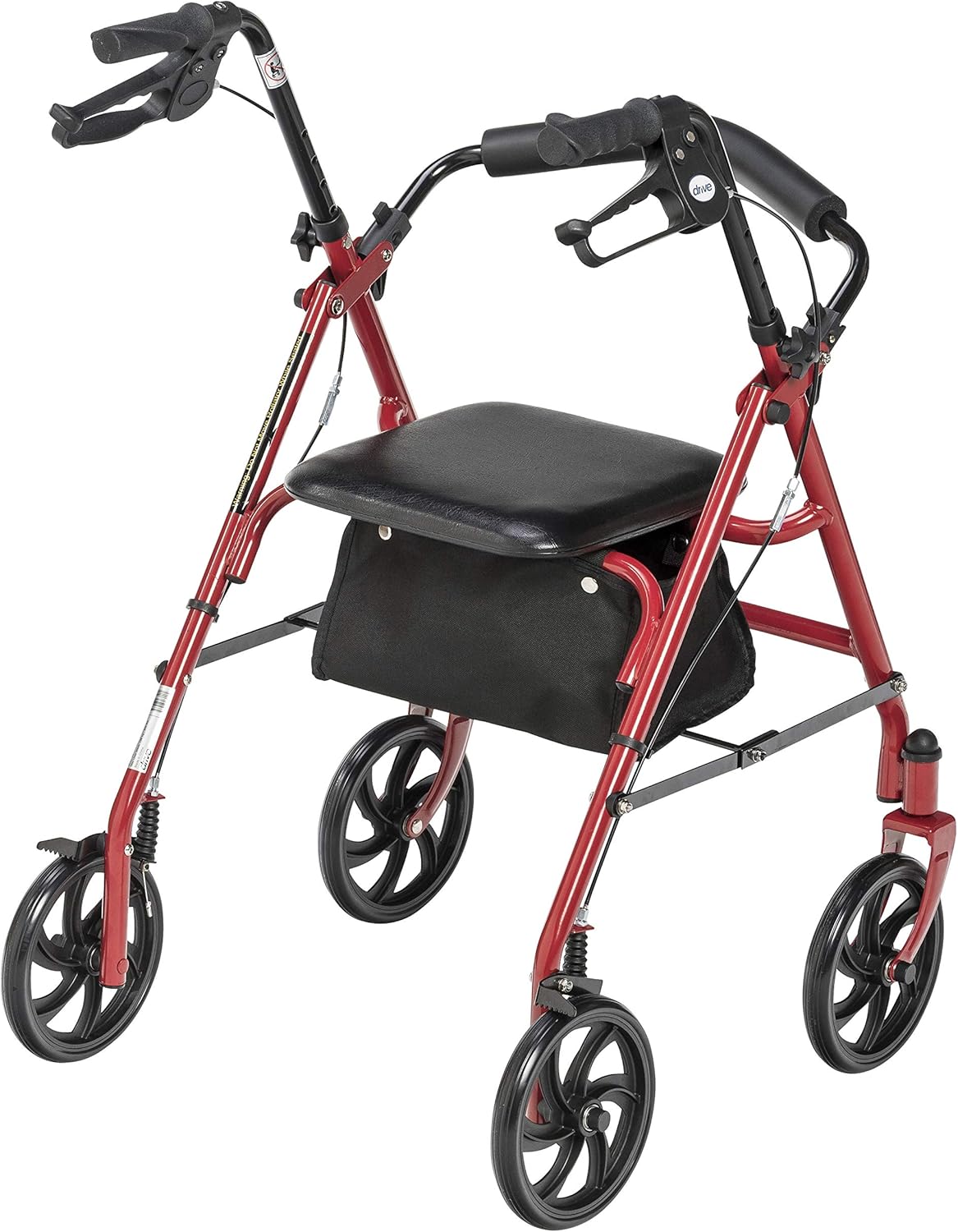Walkers
A walker can help you move around more independently while also giving you improved stability and safety. Walkers can help you keep your balance in all directions by giving you a wide base of support. They provide more safety and security in standing then crutches or canes.
Walkers Help Provide:
- Support to weak muscles
- Decreased weight bearing to your lower body
- Lower falls risk
- Safer movement for decreased feeling & motor planning in legs/feet
- Lessen pain and fatigue when standing & walking
How to size a walker
Walkers are safest and work the best when they fit you well. Walkers that are too tall or short can cause back, arm soreness, and offer only limited support when standing or moving. Typically, a walker is made to hold 250 to 300 lbs. but reinforced bariatric walkers can be found that help support more weight. The legs of a walker are typically adjustable and should all be set to the same height. A physical therapist can assist in sizing you with a walker. Usually, the height should be set at:
- Handgrips at wrist level when arms relaxed at side while wearing shoes
- Elbows slightly bent (20%) when standing upright holding handgrips
Types of walkers
Standard Walkers (without wheels)
- Helps with balance & weight bearing issues
- Has 4 straight legs
- Most maneuverable in tight spaces
- Has to be picked up in the air, moved slightly forward, and placed down before taking a step
- Adjustable to fit your height
Two wheeled walkers
- Helps with balance & weight bearing issues
- Wheels are placed in the inside front
- Most maneuverable in tight spaces
- Less fatiguing than a standard walker
- Push to move & promotes a more normal gait
Three wheeled walkers (rollator)
- Helps with balance issues but not for weight bearing
- Ideal to navigate narrow indoor spaces
- More challenging to keep steady on uneven outdoor spaces
- Frequently has brakes to slow speed in declines or keep stable in park
- Lighter than 4 wheeled walkers but does not come with seats
Four wheeled walkers (rollator)
- Helps with balance issues but not for weight bearing
- More stable than a 3 wheeled walker
- Best walker for uneven outdoor surfaces
- Often comes with a seat to help with fatigue
- Does not move as easily in narrow space




Paying for you walker
- Most insurances, including Medicare, pay for a new walker every 5 years
- Standard and 2-wheeled walkers can start at $30
Accessories
- Baskets
- Trays
- Bags
- Cupholders
